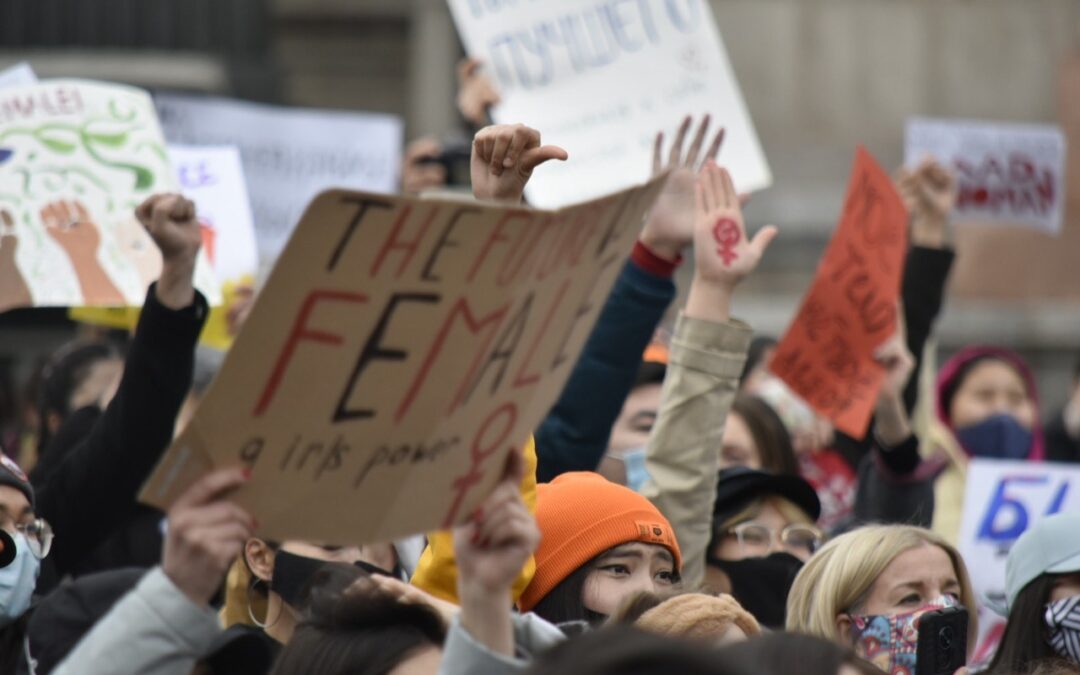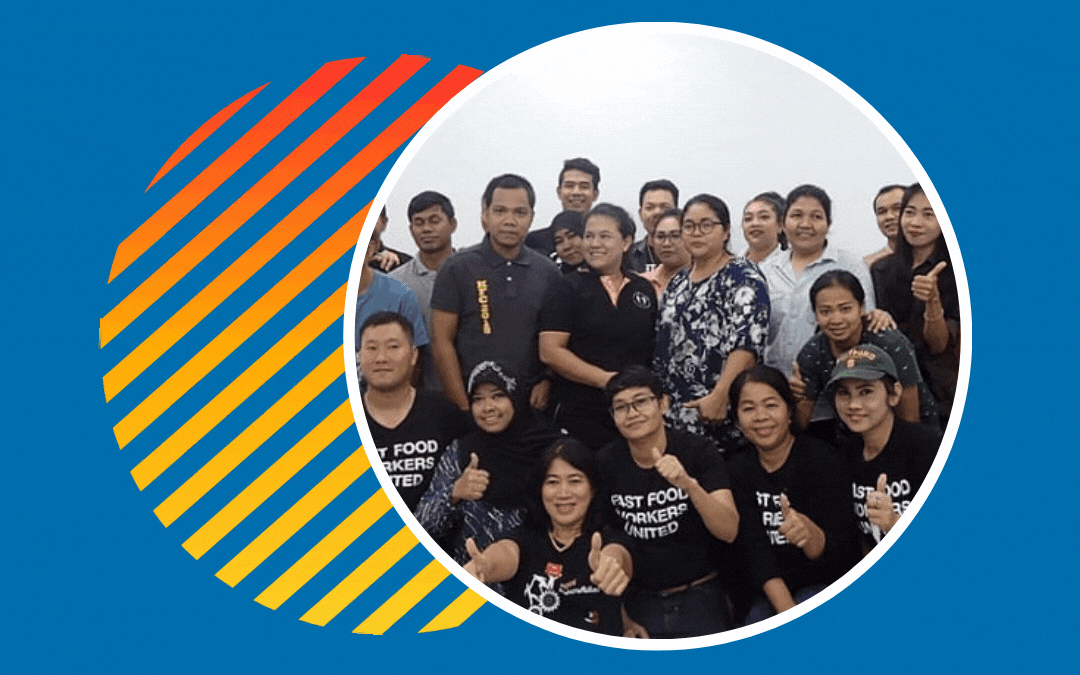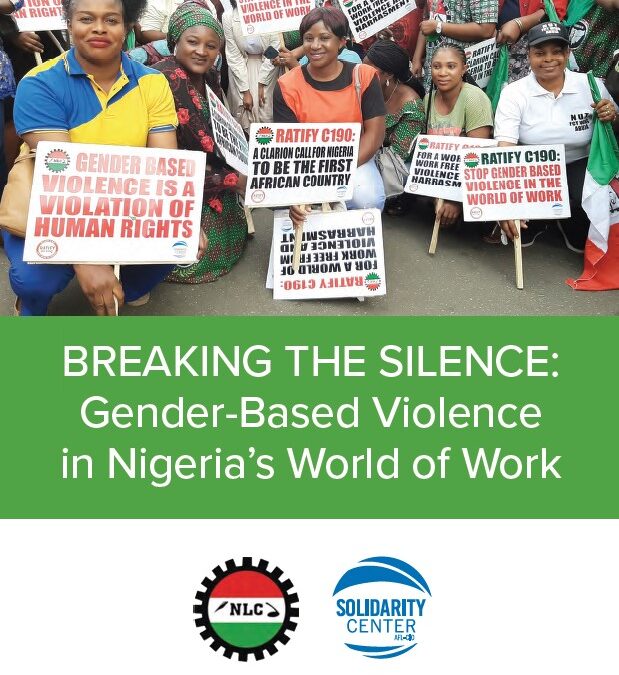
Nov 12, 2021
Победа в борьбе за гендерное равенство и равенство в оплате труда в бывшей советской республике Казахстан: в прошлом месяце эта страна отменила список рабочих мест, юридически недоступных для женщин с 1932 года. Такие дискриминационные списки, которые вынуждают женщин отказываться от более высокооплачиваемой работы в традиционно мужских секторах в пользу низкооплачиваемых профессий, в которых доминируют женщины, – типичны для данного региона, а также для Беларуси, Кыргызстана, России и Узбекистана.
Отмена данного списка в Казахстане стала возможной в результате многолетних усилий адвокации партнера Центра Солидарности – Казахстанского Международного Бюро по правам человека (КМБПЧ) на встречах, конференциях и других форумах с политиками и представителями правительства, включая Министерство труда и социальной защиты Республики Казахстан и Комиссию по правам человека при Президенте Республики Казахстан.
“В современном мире не должно быть дискриминационных ограничений на доступ к работе, и все люди сами имеют право выбирать, где и как работать”, – сказал заместитель директора КМБПЧ Денис Дживага.
Работа, в которой ранее женщинам было отказано, включала относительно хорошо оплачиваемые рабочие места в строительстве, металлообработке, горнодобывающей промышленности и нефтедобыче, в том числе: работы, выполняемые на высоте или под землей; квалифицированные строительные, дорожные и металлообрабатывающие работы, включая кладку, работу на землеройной технике, плавку руды, установку труб и сварку; а также специализированные работы в разведке и геодезии, такие как бурение скважин, установка вышек и прессование труб.
Международная организация труда (МОТ) уже давно призывает государства отменить списки профессий, запрещенных для женщин, учитывая их дискриминационное воздействие. Женщины в Казахстане, например, зарабатывают в среднем на 32 процента меньше, чем мужчины.
Список Казахстана, который ограничивал доступ женщин к более чем 200 профессиям на том основании, что работа была слишком тяжелой или опасной с физической точки зрения, был отменен после того, как правительство Казахстана признало в Комитете ООН по ликвидации дискриминации в отношении женщин (КЛДЖ), что запреты на работу способствовали неравенству в оплате труда мужчин и женщин. Комитет ООН по экономическим, социальным и культурным правам (CESR) рекомендовал Казахстану рассмотреть другие формы правовой защиты женщин, чтобы обеспечить их безопасность на работе, а не осуществлять полный запрет на доступ к определенным профессиям.
“Гендерное равенство и равенство в оплате труда требуют, чтобы мужчины и женщины имели равный доступ ко всем видам работы и чтобы все рабочие места были безопасными для всех работников”, – подчеркнул директор региональной программы Центра солидарности в Европе и Центральной Азии Руди Портер.

Nov 12, 2021
In a win for gender and pay equity in the former Soviet region of Kazakhstan, last month the country abolished a list of jobs from which women have been legally barred since 1932. Such discriminatory lists—which force women away from higher-paid work in traditionally male-dominated sectors toward lower-paid, female-dominated occupations—are common in the region, including in Belarus, Kyrgyzstan, Russia and Uzbekistan.
Abolition of Kazakhstan’s list came about after years of advocacy efforts by Solidarity Center partner Kazakhstan International Bureau for Human Rights (KIBHR) in meetings, conferences and other fora with policy makers and government representatives, including the Ministry of Labor and Social Protection of the Republic of Kazakhstan, and the Commission on Human Rights under the President of the Republic of Kazakhstan.
“In the modern world there should not be discriminatory restrictions on access to work and all people themselves have the right to choose where and how to work,” said KIBHR Deputy Director Denis Jivaga.
Among the jobs previously denied to women were relatively well-paid jobs in construction, metalwork, mining and oil extraction sectors including: jobs performed at-height or underground; skilled construction, road and metal-working jobs including masonry, ground-moving machine operation, ore smelting, pipe fitting and welding; and specialized work in exploration and surveying such as borehole drilling, derrick installation and pipe pressing.
The International Labor Organization (ILO) has long called on states to abolish lists of professions prohibited for women given their discriminatory impact. Women in Kazakhstan, for example, earn 32 percent less than men on average.
Kazakhstan’s list—which restricted women from more than 200 jobs on the grounds that the work was too physically demanding or dangerous—was abolished after the Kazakhstan government acknowledged to the UN Committee on the Elimination of Discrimination Against Women (CEDAW) that job prohibitions have contributed to gender-pay inequity. The UN Committee on Economic, Social and Cultural Rights (CESR) recommended that Kazakhstan consider other forms of legal protection for women to keep them safe at work rather than a total ban on access to certain professions.
“Gender and pay equity require that men and women have equal access to all types of work, and that all jobs be made safe for all workers,” says Solidarity Center Europe and Central Asia Regional Program Director Rudy Porter.
Read in Russian.

Nov 10, 2021
The Fight for $15 movement in the United States, in which workers seek a living wage and a union, is part of a global struggle by fast food workers often employed by the same multinational corporations that make massive profits even as their employees struggle to get by.
In Thailand, Apantree Charoensak, a former union leader who led the campaign to organize fast food workers at KFC, describes on this week’s Solidarity Center Podcast how workers overcame the company’s opposition to successfully form a union and win better wages and working conditions.
“The company knew that if the demands were successful, it would impact 70 percent of the workers which, back then, there were about 18,000 workers. So they pressured and threatened me a lot,” she tells podcast host and Solidarity Center Executive Director Shawna Bader-Blau. “They said they would get me out of the company, if I still tried to help other workers.”
Charoensak says the campaign drew lessons from the U.S. Fight for $15 campaign throughout the years-long effort to form a union.
“It took six years from [when] the union was first organized until we reached the threshold of 20 percent because in Thailand, the law requires that you have to reach over 20 percent of all the workforce before you can file for collective bargaining.”
Catch All Solidarity Center Podcasts!
Listen to this all Solidarity Center episodes here or at Spotify, Amazon, Stitcher, Castbox or wherever you subscribe to your favorite podcasts.
Download recent Season Two episodes:
The Solidarity Center Podcast, “Billions of Us, One Just Future,” highlights conversations with workers (and other smart people) worldwide shaping the workplace for the better.
Nov 5, 2021
Dave Welsh, Thailand director for the Solidarity Center, noted: “Sawit has been out front and extremely impactful in his work to welcome and integrate migrant workers into the Thai labor movement. Given the political sensitivities within the government and the business sector around providing rights to migrant workers and Sawit’s strong role in advocating for them, there is no doubt there is a link between his advocacy for migrant workers and the legal harassment he has faced over the past decade.”

Nov 3, 2021
An alarming 57.5 percent of women workers interviewed across all sectors for this Nigeria Labor Congress (NLC) report say they experienced gender-based violence and harassment (GBVH) in the world of work. More than one-third of respondents said that even when violations were reported, justice was rarely upheld.
Download here.



